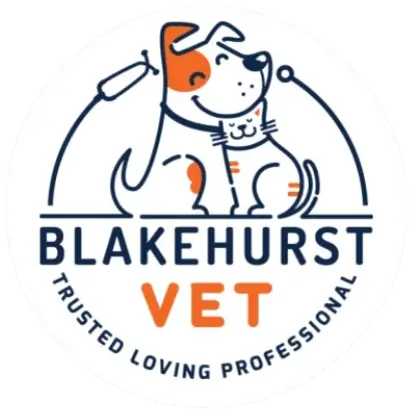Can Dogs Eat Carrots? Carrots are a popular vegetable used in many dishes and enjoyed by humans all around the world. But have you ever wondered if it’s safe for your canine companion to indulge in this crunchy orange treat?
In this article, we will explore the benefits and potential risks of feeding carrots to dogs. We’ll also discuss how to properly incorporate carrots into your dog’s diet and provide some delicious carrot-based treat recipes for your furry friend.
Why Carrots Are Good for Dogs
Carrots are a nutrient-dense vegetable that can provide numerous health benefits for dogs. They are high in vitamins A, C, and K, as well as potassium, fibre, and beta-carotene. These nutrients support overall immune system function, eye health, skin and coat health, and digestion.
The crunchiness of carrots can also be beneficial for dogs’ dental health by promoting chewing and reducing plaque buildup. Additionally, the low-calorie content of carrots makes them a great snack option for overweight or obese dogs.
Plus, dogs tend to love the taste and texture of carrots, making them an easy vegetable to incorporate into their diet.
Risks of Feeding Carrots to Dogs

While carrots can provide many health benefits for dogs, there are some risks you should be aware of before incorporating them into your canine’s diet.
Firstly, too many carrots can lead to gastrointestinal upset such as diarrhoea and gas. It’s important to introduce carrots slowly and in small amounts to avoid any digestive issues.
Another potential risk is choking. If your dog gulps down large chunks of carrot without chewing properly, they may get lodged in their throat. Always supervise your dog when giving them whole or raw carrots and cut them into bite-sized pieces if needed.
Lastly, you should also be aware of any allergies your dog may have. While carrots are not known to be a common allergen for dogs, it’s always important to monitor their reaction after introducing them to a new food.
How to Incorporate Carrots into Your Dog’s Diet
If you’ve decided that carrots would be a beneficial addition to your dog’s diet, there are several ways you can incorporate them into their meals. Here are a few examples:
- As a snack: Cut raw carrots into bite-sized pieces and give them to your dog as a crunchy and nutritious treat. Plus, the high fibre content can help with digestion. Additionally, you can freeze carrots for a refreshing and soothing treat during hot summer months.
- In meals: You can mix cooked or pureed carrots into your dog’s regular food to add some extra nutrients and flavour. Alternatively, you can also use them as a low-calorie replacement for treats during training sessions.
- In homemade treats: There are many delicious homemade treat recipes that include baby carrots
as the main ingredient. This way, you have more control over what goes into your dog’s snacks and can avoid any potential harmful ingredients found in store-bought treats. - As a supplement: If your dog has special dietary needs or health concerns, you can also find carrot-based supplements specifically designed for dogs. These supplements can provide targeted benefits and ensure your dog gets the right amount of nutrients.
- In moderation: Remember to always feed carrots in moderation and adjust the amount depending on your dog’s size, weight, and health condition. It’s also important to consult with your veterinarian before making any significant changes to your dog’s diet.
- As a reward: Dogs can also benefit from the mental stimulation and satisfaction of working for their food. You can use small pieces of carrots as a reward during training or as a fun game for your dog to search for hidden carrot treats.
These are just a few examples, but there are many other creative ways to incorporate carrots into your dog’s diet. Just remember to always monitor their intake and make sure they don’t experience any negative reactions.
Risks of Overfeeding Carrots to Dogs
As with any food, overfeeding can lead to potential health risks for dogs. Some of the risks associated with overfeeding carrots include weight gain and digestive issues such as bloating and discomfort. Carrots should only make up a small portion of your dog’s daily calorie intake. It’s essential to balance their overall diet and ensure they are getting all the necessary nutrients from other sources as well.
It’s also crucial to note that carrots should not be the only vegetable in your dog’s diet. Variety is key in providing a well-rounded and balanced diet for your canine companion. If you notice any changes in your dog’s behaviour or health after feeding them carrots, it’s essential to consult with your veterinarian. They can help determine if there are any underlying issues and advise on the best course of action.
Additionally, if your dog has any existing health conditions or is taking any medications, it’s crucial to consult with your veterinarian before adding carrots (or any new food) into their diet.
Why Carrot-Based Treats Are a Great Option for Dogs
Store-bought treats can often be filled with preservatives, artificial flavours, and other unhealthy ingredients that may not be suitable for dogs. Homemade treats using carrots as the main ingredient are a great alternative as they provide numerous health benefits and allow you to control what goes into your dog’s snacks.
Furthermore, making homemade treats is a fun way to bond with your furry friend and involve them in the kitchen. You can also customise the recipes based on your dog’s preferences or dietary needs.
Lastly, carrot-based treats can be an excellent option for dogs with allergies or sensitivities to certain ingredients found in store-bought treats. You have full control over the ingredients, making it easier to avoid any potential allergens or harmful additives.
Mistakes to Avoid When Feeding Carrots to Dogs
While carrots can be a healthy and tasty addition to your dog’s diet, there are some common mistakes you should avoid:
- Feeding too many: As mentioned earlier, overfeeding carrots can lead to digestive issues and weight gain. Always feed carrots in moderation and consult with your veterinarian on the appropriate amount for your dog.
- Using canned or pickled carrots: Canned or pickled vegetables often contain high levels of sodium and other preservatives that can be harmful to dogs. Stick with fresh or frozen carrots instead.
- Feeding only one type of vegetable: Variety is essential in providing a well-rounded diet for your dog. Don’t rely solely on carrots as the only vegetable in their diet.
- Not cutting into bite-sized pieces: Dogs can easily choke on whole or large chunks of carrots. Always cut them into appropriate sizes for your dog to avoid any choking hazard.
- Not consulting with your veterinarian: Every dog is different, and it’s crucial to discuss any changes to their diet with a professional. They can provide specific recommendations based on your dog’s age, weight, health condition, and dietary needs.
- Ignoring potential allergies or sensitivities: While carrots are generally safe for most dogs, some may have allergies or sensitivities to specific vegetables. Monitor your dog’s reaction when introducing new foods and consult with your veterinarian if necessary.
By avoiding these mistakes and incorporating carrots into your dog’s diet in appropriate ways, you can provide them with a nutritious and tasty addition to their meals. With moderation and care, carrots can be a beneficial and enjoyable treat for your furry companion.
Contact Blakehurst Vet For Your Dog’s Nutritional Needs
At Blakehurst Vet, we understand the importance of proper nutrition for your furry friend. That’s why we offer tailored and one-on-one care to ensure your pet’s dietary needs are met. Our team of experts is dedicated to providing friendly and professional service every visit, creating a calming environment for both you and your pet.
We also believe that preventive measures such as regular dental check-ups are essential in maintaining your dog’s overall health. Our professional scale and polish services can keep your dog’s teeth clean and healthy, preventing bad breath and gum disease.
In addition to our various services, we also provide a spacious reception area that separates cats and dogs to minimise stress during visits. We even offer free puppy play sessions for 10-14 week olds to help with socialisation.
With over 20 years of experience, our veterinarian has a passion for diagnosing tricky medical problems and performing soft tissue surgery. Book your pet’s consultation online or call us at (02)9547 2750 to schedule an appointment now!
FAQs
Can dogs eat cooked carrots as part of their dog food?
Yes, dogs can eat cooked carrots, and they can be a healthy addition to their dog food. Cooked carrots are easier for dogs to digest than raw carrots, and they can provide beneficial nutrients such as beta-carotene, fiber, and vitamins.
Are raw carrots a safe option to feed your dog as a healthy treat?
Yes, raw carrots are safe and can be a healthy treat for your dog. Dogs eat raw carrots without any major issues, though it’s essential to cut them into manageable pieces to prevent choking. Baby dog carrots can be particularly convenient due to their smaller size.
How does carrot juice compare to whole carrots when choosing to feed your dog?
Carrot juice can be given to dogs in small quantities, but it lacks the fiber found in whole carrots and can have higher sugar levels. It’s better to feed your dog whole carrots, either raw or cooked, to take advantage of the full nutritional benefits carrots offer.
Should carrots be included in commercial dog foods as a regular ingredient?
Carrots are often included in commercial dog foods as they provide essential vitamins and fiber, making them a beneficial ingredient in a balanced diet. However, while carrots are a healthy addition, they should not replace a significant portion of the diet which needs to include a variety of nutrients from different human food sources.
Conclusion
Carrots are a nutritious and tasty addition to your dog’s diet when fed in moderation. They can provide numerous health benefits and make for delicious homemade treats. However, it’s essential to consult with your veterinarian before making any changes to your dog’s diet and monitor their reaction to new foods carefully.
By doing so, you can provide your furry friend with a healthy and balanced diet that supports their overall well-being. So, always remember to prioritise your pet’s nutrition needs and consult with professionals like Blakehurst Vet for personalised care and advice. Together, we can keep our beloved dogs happy, healthy, and thriving.

